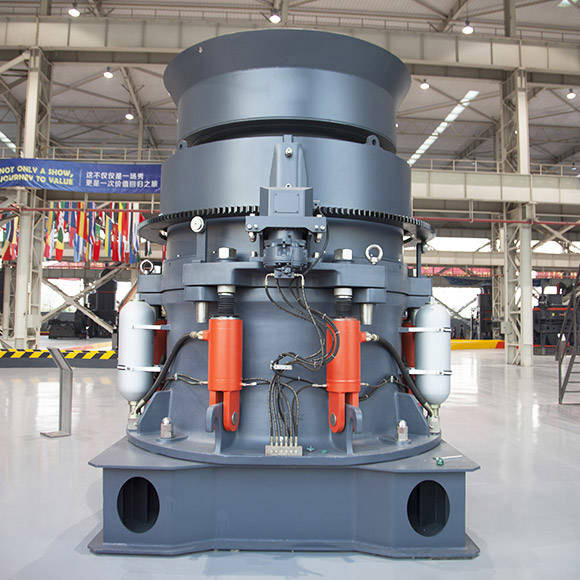A cone crusher is a type of compression crusher used primarily for secondary or tertiary crushing of materials such as rock, ores, and minerals. The design features a cone-shaped crushing chamber, lined with wear-resistant materials, which crushes the feed material by squeezing it between the cone and the concave surface. Cone crushers are especially effective in reducing materials to specific sizes with precision, making them indispensable in industries like mining, quarrying, and aggregate production. The equipment is designed to handle hard materials like granite, basalt, and certain ores, ensuring high efficiency and consistent output.
Working principles of a cone crusher revolve around the motion of the cone inside the crushing chamber. The motor drives the eccentric shaft, which causes the cone to move in a circular path within the chamber. As the material enters the top of the crusher, it gets trapped between the mantle (the moving part of the cone) and the concave (the stationary outer ring). This action creates a compressive force, breaking the material down into smaller pieces. The size of the output material is determined by the gap between the mantle and the concave, which can be adjusted to meet various size requirements.

Cone crushers come in various types and configurations, each suited for different applications. The most common types include standard cone crushers, which are typically used for coarse to medium crushing, and short-head cone crushers, designed for fine crushing. Other variations include hydraulic cone crushers, which utilize hydraulic mechanisms to adjust the crusher’s settings, ensuring smooth operation and easier maintenance. These designs allow for flexibility in material processing, catering to a wide range of industries from construction to mining.
One of the key advantages of cone crushers is their efficiency and productivity. With the ability to crush materials into uniformly shaped particles, cone crushers are highly efficient, providing high throughput with relatively low energy consumption. Additionally, their capability to handle abrasive and tough materials makes them ideal for applications requiring the crushing of hard and medium-hard rocks. The use of advanced materials for the cone and concave lining also enhances the crusher’s durability and wear resistance, reducing downtime and operating costs.
In conclusion, cone crushers are essential in modern material processing industries due to their versatility, efficiency, and ability to produce consistent, high-quality aggregates. With advancements in technology, modern cone crushers feature automation systems, which improve control and reduce the need for manual adjustments, ensuring a higher level of precision and safety. Their robust design and adaptability make cone crushers one of the preferred solutions in industries requiring reliable and efficient secondary or tertiary crushing solutions.

